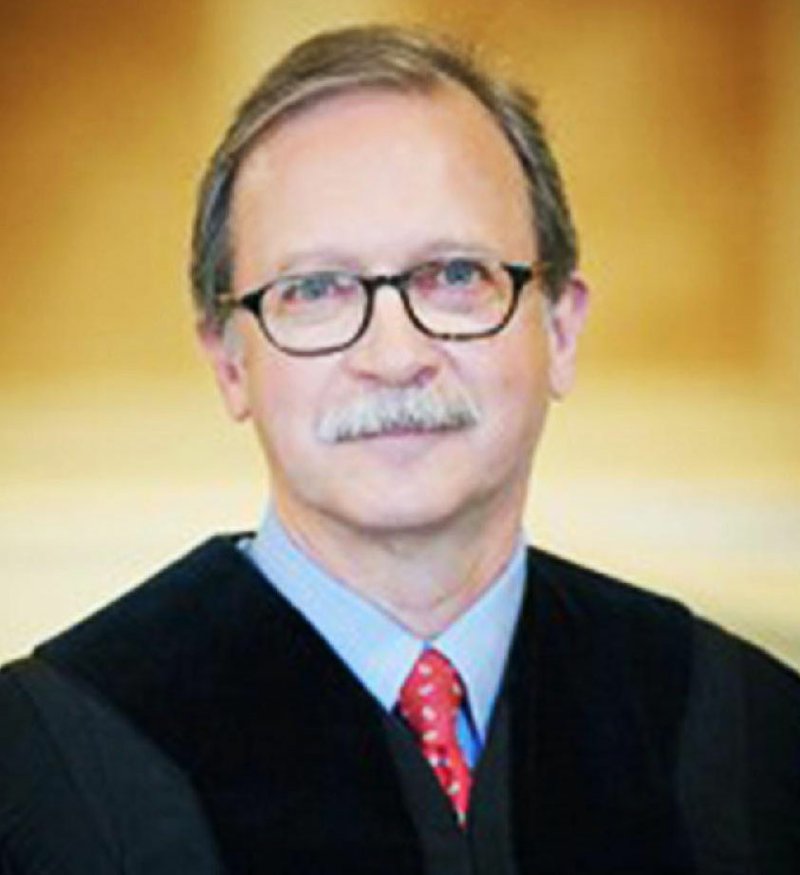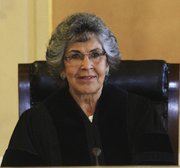Arkansans have no right to file a lawsuit against their state government, even where the Legislature has given them permission to, the Arkansas Supreme Court ruled in a split decision Thursday that overturned two decades of case law.
The new precedent handed down by a 5-2 decision prompted musings throughout the day by lawyers, lawmakers and lobbyists as to what the effect would be on a wide range of cases: from simple wage disputes to criminal appeals to requests for public records.
The issue before the high court was a legal doctrine known as sovereign immunity, which, as Article 5, Section 20, of the Arkansas Constitution of 1874, simply says: "The State of Arkansas shall never be made defendant in any of her courts."
For 60 years, the Arkansas Supreme Court had taken a strict approach to interpreting that language, according to the majority opinion written by Supreme Court Chief Justice Dan Kemp. Then, in 1996, the justices reversed their precedent and began allowing the Legislature to pass laws with exemptions to sovereign immunity.
[DOCUMENT: Read the majority opinion]
One of those laws, the Arkansas Minimum Wage Act, was the subject of the case in which the justices ruled Thursday. In Board of Trustees of the University of Arkansas v. Matthew Andrews, a former bookstore manager at Mena's Rich Mountain Community College, which is under the university system, had sued his former employers seeking overtime pay.
The university system sought to have the case thrown out in circuit court, citing sovereign immunity. When a judge declined to toss the case, lawyers for the system appealed to the Supreme Court.
The high court's majority found that language in the law expressly allowing state employees to sue for back wages was incompatible with the Arkansas Constitution. The ruling also dismissed Andrews' lawsuit.
The reaction from Gov. Asa Hutchinson, who is in charge of state agencies, and Attorney General Leslie Rutledge, who represents the state in court, was of agreement with the court's decision. Both the governor and the court said cases against the state may still go through the "proper" route of the state Claims Commission.
The University of Arkansas System, in a brief statement, also praised the ruling. A spokesman for Rutledge said the attorney general was still analyzing the decision to determine its effect on other parts of state government.
"This doesn't foreclose all avenues of relief," Hutchinson, an attorney, said in a statement.
The Claims Commission is an administrative body whose members are appointed by the governor as fact-finders in monetary claims against the state, and whose decisions are reviewed by a panel of state lawmakers.
Most states, as well as the federal government, have long relied on sovereign immunity protections. According to a review by the National Conference of State Legislatures, lawmakers began rolling back those protections or creating other avenues for claims in the middle of the last century as part of "a trend toward government accountability."
The Arkansas Claims Commission was established in 1955, nearly a decade after Congress passed the Federal Tort Claims Act.
"You're changing from having a neutral umpire to going to an opposing player," said Chris Burks, an attorney for the Sanford Law Firm representing Andrews.
The commission handled 804 claims against the state in fiscal 2017 and issued an award in about half of those cases, according to Director Kathryn Irby. It's unclear how the ruling will affect the commission's caseload, Irby said, declining to comment further.
In addition to representing Andrews, Burks said his law firm is involved with a pair of minimum-wage cases filed by employees of the Department of Human Services and the Youth Services Division. The court's ruling effectively makes those court cases moot, Burks said.
Others questioned what other types of suits the justices' ruling may creep into. The ruling even seemed to unite, if on small grounds, court observers with disparate political views.
For example, conservative state Rep. Bob Ballinger, R-Hindsville, wondered how a resident would seek to compel the state to comply with the Religious Freedom Restoration Act he sponsored in 2015, or the Freedom of Information Act, if that person is barred from court action.
Meanwhile, outspoken Pulaski County Circuit Judge Wendell Griffen, whom Ballinger has sought to impeach, also raised concerns about the ruling through his attorney. Michael Laux is Griffen's lawyer in a federal lawsuit against the Arkansas Supreme Court justices over their decision to strip the lower court judge of hearing all death-penalty cases. Laux questioned whether the Supreme Court would cite its own ruling in its attempt to have Griffen's suit thrown out of federal court.
"I think the one thing everyone agrees on is it's going to be far reaching," said Senate President Pro Tempore Jonathan Dismang, R-Searcy. "I don't think we're in a position to know what the impact might be. ... I think there will be some unintended consequences."
The dissent, penned by Justice Karen Baker and joined by Justice Josephine Hart, raised similar concerns and questioned how the ruling would impact matters such as land-condemnation cases, suits against state hospitals, illegal exactions, the FOI and dependency-neglect cases filed against the Department of Human Services.
"The majority's opinion transforms the State to king-like status," Baker wrote.
Still, some attorneys and lawmakers were less quick to denounce the majority's opinion.
Arkansas Bar Association President Tony Hilliard, while saying many attorneys would prefer to have their cases heard in a courtroom, conceded that the wording of the constitution was pretty clear and the justices were reverting to a long, prior period of court precedent.
The effect of the ruling will "not be terribly dramatic," said Robert Steinbuch, a law professor at the University of Arkansas at Little Rock's Bowen School of Law. That's because state agencies and their attorneys still have the ability waive sovereign immunity voluntarily, Steinbuch said, saying agencies may do so in discrimination claims, or cases of post-conviction appeals.
"Generally sovereign immunity is only considered to apply to claims for money," Steinbuch said.
But Burks, Andrews' attorney, rejected the idea that the majority's opinion was narrowly worded, calling it "a radical departure from existing Arkansas law." He also criticized Kemp's opinion, saying it attempted to infer what Arkansans were thinking more than a century ago when they adopted a new constitution.
"The drafters of our current constitution removed language from the 1868 constitution that provided the General Assembly with statutory authority to waive sovereign immunity, and instead used the word 'never,'" Kemp wrote.
Joining Kemp's majority opinion was specially appointed Justice Chad Pekron, a Little Rock attorney. Hutchinson appointed Pekron to hear the case in place of Justice Courtney Goodson, who recused. Goodson's husband, John Goodson, served on the university system's board of trustees.
A Section on 01/19/2018


